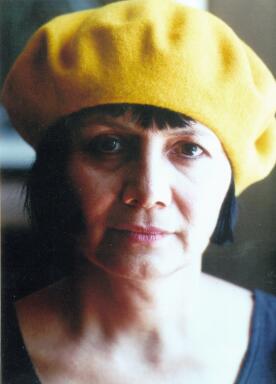Sonora of My Dreams
Sonora, a place in México.
Sonora, the word, is a man with a sonorous voice.
He is the desert sand, as bereft as the dry riverbed of the Colorado River.
He lays side by side with Arizona, a woman, the place that I am.
I lay in flowering cactus sands – fenced off by a barrier, a border to him.
Our lips cannot touch.
Our breaths cannot meet.
He is Sonora, the man. I am Arizona, the woman.
We yearn to touch, but we are fenced off from each other.
My lover Sonora, and I share the same serape sunset,
streaked golden orange, pierced turquoise jade and slashed
with blood red.
We hear Yaqui music of love all around.
But we cannot love. The deer dancers in the sky jingle their ankle bells.
They rattle hand gourds. Yaqui deer dancers invite Sonora and Arizona
to dance side by side, step by step, shoulder to shoulder, heart to heart.
A Saguaro cactus pillow waits for Sonora and Arizona.
A pillow of spiny needles, stained of sanguine
cochineal and carmine purple.
They are so close yet so far apart.
Lips cannot touch.
Breaths cannot meet.
Sonora weeps. ¡Ay, Arizona, tú eres mi otro yo!
Arizona laments. ¡Ay, mi Sonora de mis sueños!
“Sonora of My Dreams,” El Canto de los delfines, Vol. 3, Center for Integrative Studies, Margarita López López, California State University Channel Islands, 2017.
Tainted Roses
Bus bench on Colorado and Allen
a little old lady from Pasadena says
That fair baby with the blue eyes
can’t be yours. You’re Mexican.
You must be the nanny.
Early morning scent of
pan dulce and tamales
no price mark up for
red chile tamales
despite double rent hike
at La Chapala Bakery.
Brookside Plunge 1929
Tuesday is designated Negro,
Mexican, and Japanese day.
Wednesday the pool is
drained for Caucasians.
Japanese produce stand
on Villa and Wilson Streets
shiny orange persimmons
in wooden crates stamped
with labels of the rising sun.
1950 streets of San Marino
No Negroes! No Mexicans!
Only Japanese gardeners in the spring to
tend the koi ponds of the pink mansions.
Morning Glory vines
on picket fences
can’t stop the wrecking ball
from plowing barrio houses
under the 210 Freeway.

Vibiana Aparicio-Chamberlin’s poetry book, Chicana on Fire, Ignited by the East Los Chicano Movement is slated for publication spring, 2021. She is the author and illustrator of three times internationally awarded Mi Amor, A Memoir. Vibiana has earned degrees in the areas of MFA Creative Writing, Antioch University; MFA Theater Arts, and MFA Educational Administration, Cal State Los Angeles. Vibiana is an accomplished author, poet, painter, and teacher of art and creative writing. Her recent exhibitions and lectures were at The National Museum of Mexican art Chicago, National Hispanic Cultural Center, Albuquerque; UC Santa Barbara, Cal State Channel Islands and at the Vincent Price Museum as a Getty artist for Pacific Standard Times, and at Self Help Graphics and Art. Vibiana, born and raised in East Los Angeles has lived in Pasadena since 1965 and is a political activist for Chicano Latino struggles. Vibiana’s poetry is published in Beyond The Lyric Moment, Phi Kappa Phi Forum, LaBloga.blogspot, El Canto de los Delfines, Inscape, Altadena Poetry Review, Dismantle, A Sonic Boom of Stars, Side-Eye on the Apocalypse, and On The Bus.